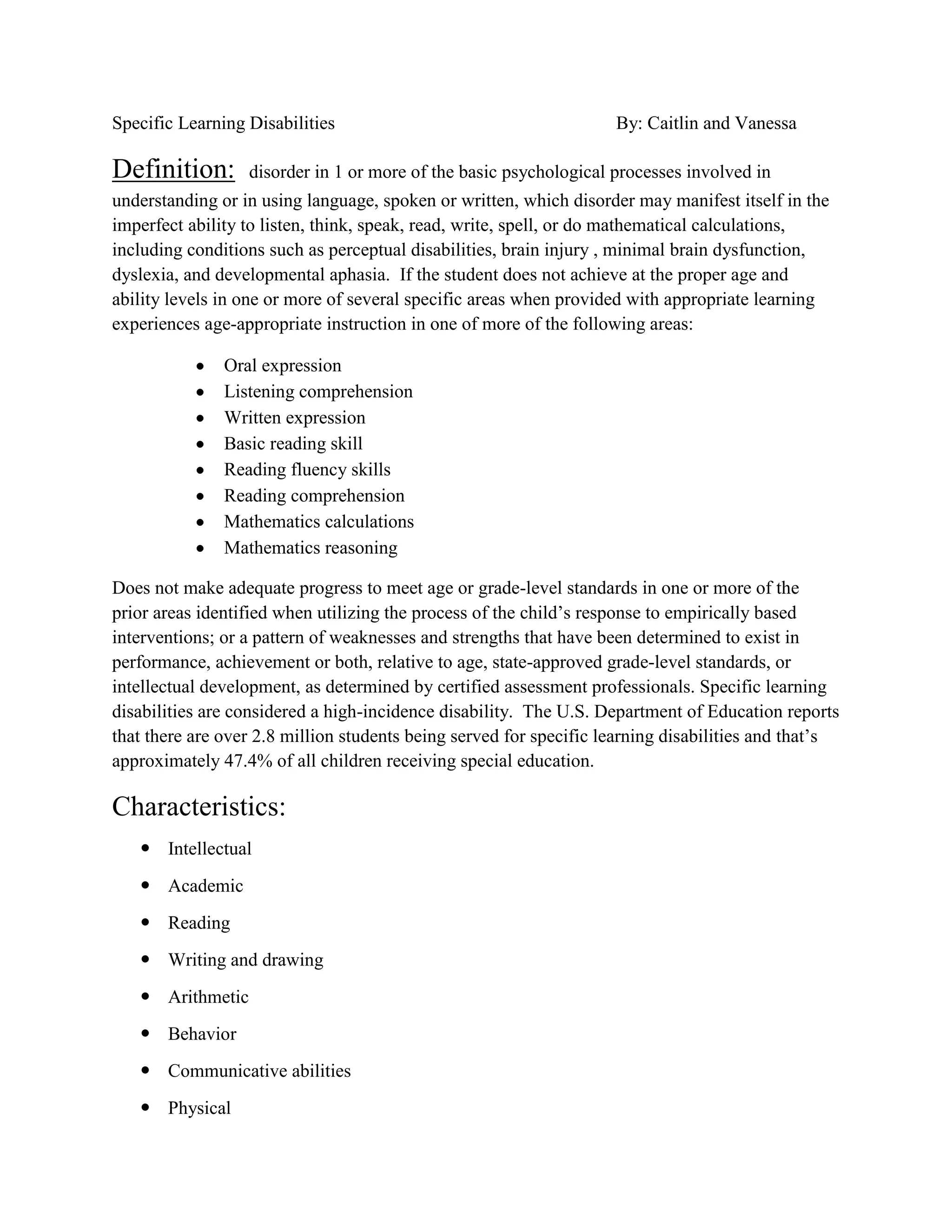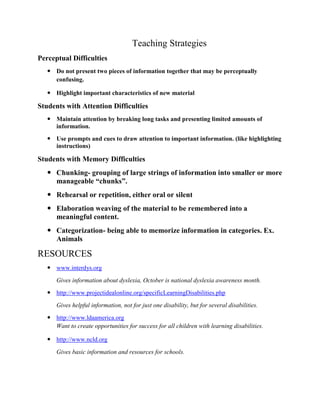Specific learning disabilities are neurological disorders that affect one or more basic psychological processes involved in understanding or using spoken or written language. They can manifest as imperfect abilities in listening, thinking, speaking, reading, writing, spelling, or math calculations. To be diagnosed, students must not make adequate academic progress despite appropriate instruction and interventions. Specific learning disabilities are considered high-incidence and affect over 2.8 million students in the US, making up 47.4% of students receiving special education services. Effective teaching strategies for students with specific learning disabilities include chunking information, repetition, elaboration, highlighting important details, and limiting amounts of new material presented at once.

